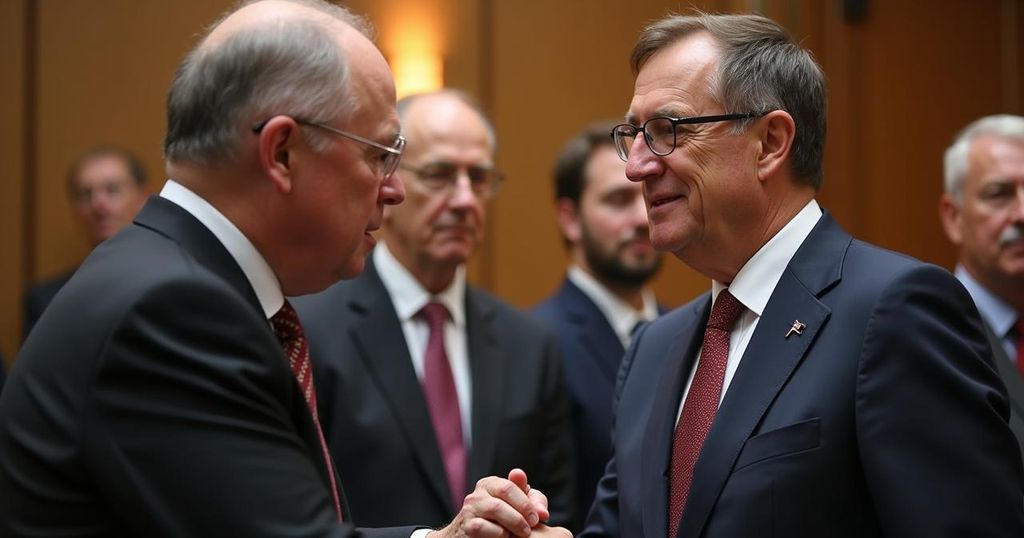Dutch Prime Minister Mark Rutte has issued a formal apology to Indonesia for the systematic and excessive violence committed by Dutch forces during Indonesia’s war of independence from 1945 to 1949. This comes after a historic review revealed a significant contradiction to previous government claims, revealing that violence was widespread and deliberate. Rutte expressed deep remorse for these atrocities and the consistent denial from past administrations.
On Thursday, December 17, Dutch Prime Minister Mark Rutte formally apologized to Indonesia for the systematic and excessive violence perpetrated by Dutch forces during the Indonesian War of Independence from 1945 to 1949. This apology follows an extensive historical review conducted by three research institutions, which provided evidence contradicting long-standing assertions by the Dutch government that military violence was sporadic in nature as they attempted to reassert control over the colony post-World War II. The comprehensive investigation, which spanned over four years, concluded that atrocities were not only widespread but also executed in a deliberate manner. The report highlighted that this extreme violence was condoned across all levels of Dutch governance, including political, military, and legal spheres. The researchers stated, “The vast majority of those who bore responsibility on the Dutch side … had or could have had knowledge of the systematic use of extreme violence.” They pointed out a collective willingness among Dutch officials to overlook, justify, and conceal such acts, motivated by the overarching goal of winning the war. Specific findings included incidents of “extrajudicial executions, ill-treatment and torture, detention under inhumane conditions, the torching of houses and villages, and disproportionate air raids and artillery shelling.” Despite previous claims by the Dutch government asserting that military actions were generally justified, the research has rendered this position incredulous. In acknowledging the wrongs of the past, Prime Minister Rutte expressed remorse not only for the atrocities committed by Dutch forces but also for the reluctance of prior Dutch administrations to acknowledge these events. He stated, “For the systematic and widespread extreme violence from the Dutch side in those years and the consistent looking the other way by previous governments, I apologize deeply to the people of Indonesia.” Rutte emphasized the importance of confronting the findings of the investigation, describing them as harsh yet necessary, and assumed full responsibility on behalf of the government for its collective failure. Although this is not the first apology from the Netherlands to Indonesia regarding wartime conduct, it marks the first formal recognition of a coordinated campaign of violence. Earlier gestures of apology have included remarks made by King Willem-Alexander during a visit to Indonesia in March 2020, and an apology from Dutch Foreign Minister Bert Koenders in 2016 concerning a massacre committed by Dutch troops in 1947.
The Netherlands has a complex colonial history with Indonesia, which was then known as the Dutch East Indies. The Dutch colonial rule in Indonesia lasted for several centuries, and following the end of World War II, Indonesia declared its independence in 1945. The subsequent conflict, which was marked by violent confrontations between Dutch forces and Indonesian nationalists, has long been a subject of historical scrutiny. Past narratives in the Netherlands have often portrayed the military’s actions as sporadic incidents rather than systematic violence, leading to public debate over the legacy of colonialism and wartime conduct.
The recent apology issued by Prime Minister Mark Rutte signifies a crucial step towards addressing and reconciling historical grievances between the Netherlands and Indonesia. It acknowledges the extensive and deliberate violence that took place during Indonesia’s struggle for independence. By confronting these findings, the Dutch government demonstrates accountability for past actions and a commitment to fostering a better understanding of historical truths, setting a precedent for acknowledgment of wrongdoings on an international scale.
Original Source: www.newsfirst.lk







